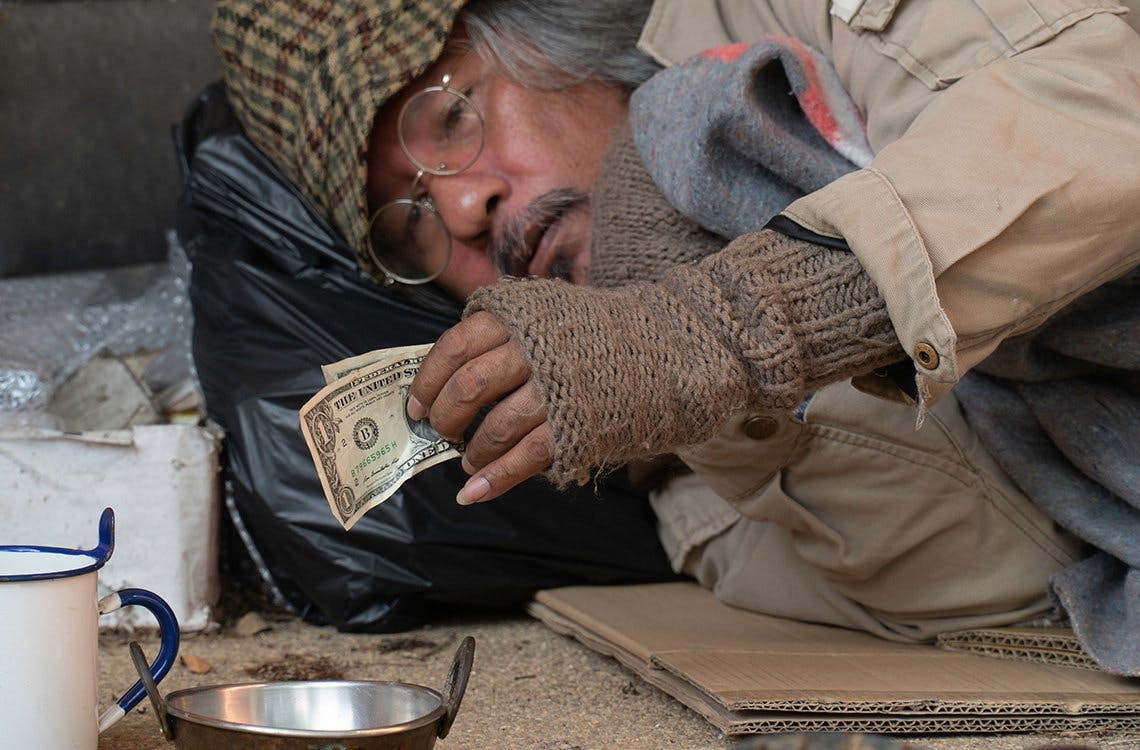
Cashless Societies Could Worsen Inequality
While some envisage cashless societies as digital utopias, the ensuing inequality for those lacking bank accounts or connectivity could mean that, for the disenfranchised, they would be digital dystopias.
As reported in the Coin Telegraph, a recent study by Genesis Mining—Perceptions and Understanding of Money 2020—found 60 percent of Americans oppose the replacement of cash with digital payment methods. The reasons for this include a lack of trust in the government, poor payment infrastructure across the U.S., and the iconic nature of the ‘greenback’ and its deep ties to American traditions and history.
The U.S. might not be the exception, either. While cash represents just one percent of Sweden’s GDP, and in China’s largest cities over 90 percent of people primarily use digital payment apps, there are concerns in both countries that digital money could lead to infringements of privacy and individual freedom, given its full traceability, compared with the anonymity offered by cash transactions.
A centrally controlled digital currency would mean the government having access to every transaction made by everyone in the country, a situation ripe for dystopian exploitation.
While digital money might give the impression it reduces fraud, it also introduces its own risks as new users would be more vulnerable to fraudsters because their lack of understanding. Most likely, criminals would also adapt to new payment methods over time, meaning that, in the long term, overall fraud may neither rise nor fall, but simply take on a different form.
A major problem with cashless payments is that they lock out the least wealthy members of society, given access to a suitable device and an internet connection are required. A bank account is also a common requirement for cashless payments, and given over five percent of U.S. households are unbanked, this would be another barrier to cashless goods and services.
The elderly, undocumented and other more vulnerable members of society would face immense challenges if paper money were entirely eliminated, as Sweden has discovered.
A cashless society could worsen income inequality, hurting disadvantaged minorities such as workers in service industries—who are often paid in cash, or at least receive a large part of their salary from things like cash tips—and others who lack access to the banking system and/or the technology to participate in a cashless economy.
There is a big risk that people who are not tech-savvy or simply do not have the funds to buy and maintain a smartphone will essentially be kept outside of the active economy.
So, what is the solution? Acknowledge that—for some—cash will always be king. Allow consumers a choice, and support cash payments alongside cashless alternatives, so that whatever a person’s reason for paying in cash, they have the option, no questions asked.
